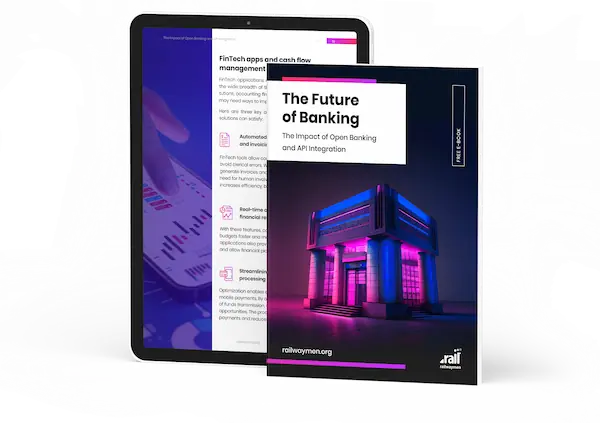Modern entrepreneurs have taken a liking to cloud-based accounting systems to better manage their financial data. The aforementioned solutions offer a number of benefits, which include cost savings, better accessibility or greater data security. Small and medium-sized enterprises (SMEs) are opting for cloud-based accounting systems due to resource constraints that affect investment in traditional software. In this article, I will try to highlight the specific factors arising from designing a cloud-based accounting system for SMEs. I will discuss the advantages and challenges of using this solution. In addition, I will zoom in on the features and functionalities that SMEs should look for in an accounting system.
Table of Contents:
1. What are the benefits of cloud-based accounting systems?
2. Challenges of cloud-based accounting systems.
3. Features and functions of cloud-based accounting systems.
4. Integration with other systems.
7. Data analysis and reporting of results.
9. Collaboration and remote working.
What are the benefits of cloud-based accounting systems?
Among the advantages of modern accounting systems, cost savings stand out. This is a very important factor that is often crucial when deciding on the right tool for daily work. Compared to traditional systems, cloud-based systems do not generate considerable expenses. SMEs in this case do not need to invest in expensive hardware and software licenses. In addition, costs including internal IT support to maintain the system are also not necessary. The decision to switch to a digital accounting system involves only the purchase of a software subscription, without any upfront costs for hardware or software licenses.
Another undoubted benefit is better accessibility. SMEs can receive access to their own financial data regardless of the location from which the command is executed. All they need is the web connection necessary to work remotely and collaborate with other team members. In addition, the convenience of cloud-based software allows real-time updates to be performed. As a result, every team member can benefit from access to up-to-date information on the company's finances.
In addition to better accessibility, top-level data security should also be mentioned. Cloud providers pay special attention to any security measures in the form of data encryption or cyclic backups. These measures are aimed at protecting customers' personal data from possible cyber threats. The aforementioned protection for SMEs does not involve investing in necessary and at the same time costly security systems on their own.

Challenges of cloud-based accounting systems
In the previous paragraphs I have included the benefits of using cloud-based accounting systems. However, one should not forget about the challenges that need to be taken into account when deciding to use them in daily work. Among the most frequently mentioned aspects is data privacy. As I mentioned earlier, modern accounting systems are focused on security issues. Nevertheless, it is the role of SMEs to choose a reputable service provider that will guarantee the required confidentiality and security of financial data. All this to minimize any risk of sensitive information falling into the wrong hands.
Web connectivity is equally important. If you have a slow network connection, you may experience delays or unplanned interruptions in accessing your financial data. The challenge for SMEs is to ensure that they have adequate network facilities in the form of a stable internet connection, while also developing a contingency plan in case internet outages occur.
It is also crucial to consider the learning curve associated with implementing a new accounting system. Not every entrepreneur realizes that in addition to investing in the necessary system, adaptation to it is equally important. During this time, team members learn how to use the new solution and take full advantage of its capabilities in practice. In order to make this process faster and more efficient, SMEs opting for cloud-based accounting systems should ensure that staff are properly trained and supported.
Features and functions of cloud-based accounting systems
When choosing an accounting system, it is important to look for certain features and functionalities. Among these features are:
- invoicing: provides users with the ability to create and simultaneously send invoices from the system based on customized templates and automatic notifications of late payments;
- expense tracking: created to observe and categorize expenses, including receipts and invoices, while providing integrations with bank accounts and credit cards;
- financial reporting: guarantees the generation of reports and necessary calculations in the form of profit and loss statements with customized date ranges and filtering;
- multi-user access: allows you to grant different levels of read, edit and create access for individual team members;
- integration with other software: this option is designed to make connections with systems created for inventory management or payroll to streamline financial processes.

Integration with other systems
The mentioned integration with other software systems is a very important feature that distinguishes modern accounting systems. This helps in improving financial processes and reducing errors resulting from manual data entry. SMEs in this situation can manage their resources and at the same time perform automation in the payment of employee wages.
In addition, the integration can be particularly useful in terms of project management. The ability to see specific financial data such as expenses and invoicing convinces many entrepreneurs to invest in this type of solution. Incorporating an accounting system with the right integrations contributes to a company's ability to make more informed business decisions.

Mobile accessibility
Intense lifestyles also translate into the business world. Frequent travel and moving from place to place means that many financiers need to have access to critical data while on the go. That's why accounting systems now offer team members to integrate data with mobile devices such as smartphones and tablets. This is a convenience that is valued by those who travel for work or those who prefer a remote mode.
Mobile access also affects real-time financial management. Team members can check the status of an invoice or expense on their device at any time, instead of waiting until they reappear at the office. Such an improvement influences quick response to current business issues.

Business customer support
The decision to choose a cloud accounting system comes with customer support from the provider. And while the software is most often user-friendly, there are times when SMEs ask for help with technical issues and software functionality. A well-matched customer support team translates into the necessary support and smooth functioning of the software.
Data analysis and reporting of results
Modern accounting systems are designed to provide users with all the key information on the state of the business in the form of analysis, statistics and reports. They are developed based on users' expectations and provide the necessary data in real time, taking into account relevant financial indicators. When analyzing the data, SMEs can identify areas where there is an opportunity to reduce or increase costs or take actions to improve overall financial health.

Scalability
Cloud-based accounting systems are designed to be scalable, meaning they can grow and adapt as the SME grows. For example, SMEs can easily add new users or upgrade subscription plans to accommodate more complex financial processes as they grow. This scalability can be especially beneficial for small businesses that are experiencing rapid growth, as they can easily scale their financial processes to keep up with their expanding operations.
In addition, cloud-based accounting systems can also give SMEs the flexibility to add new features or integrations as needed. This means they can customize the software to meet their specific business needs, rather than being limited by a one-size-fits-all solution.
Collaboration and remote working
Cloud-based accounting systems can facilitate collaboration among team members, regardless of their physical location. These systems offer features such as real-time access to data and automated workflows that allow team members to collaborate seamlessly, even if they are in different locations.
In addition, cloud-based accounting systems can also provide SMEs with the flexibility to support remote work, which is becoming increasingly popular among SMEs. With cloud-based accounting systems, team members can access financial data and complete financial processes from anywhere with an internet connection, which can help SMEs attract and retain top talent regardless of location.

Conclusion
In conclusion, cloud-based accounting systems offer many benefits to SMEs, including cost savings, improved accessibility and enhanced data security. By choosing a software system with integration capabilities, mobile accessibility and reliable customer service, SMEs can further streamline their financial processes and make more informed business decisions. With the right cloud accounting system in place, SMEs can focus on growing their business, knowing that their financial data is secure and easily accessible.
An additional aspect is the ability to take advantage of the assistance offered by dedicated teams that organize special training sessions on best practices for using the software. Forums are also created where the community exchanges experience and tips from daily interaction with accounting systems.
Examples of applications from Railwaymen using accounting systems
Among the solutions offered by Railwaymen, one can find applications using various accounting systems. Among the applications dedicated to the FinTech industry, one can highlight FreshPay, which is a payroll management system that allows you to settle pay slips based on the applicable provisions of UK law. The main role of the tool is to enable accountants to better run their business and scale easily.
Another example of an application that leverages the capabilities of accounting systems is CostTracker. It's an AI purchase order management system that includes in its structure an accounting module that allows it to pull invoice data from the app's selected accounting system and match it to specific purchase orders. In addition, CostTracker processes the invoices and then sends them to the accounting system designated by the user. For more details on both solutions, see the Case Studies section of Railwaymen's website.
Discover FinTech industry trends with an e-book from Railwaymen
If the development of the FinTech industry is close to your interests, then check out the latest e-book from Railwaymen titled. "The Future of Banking: The Impact of Open Banking and API Integration." In it, you will find an in-depth description of the predictions of the changes taking place in the financial industry and advice from industry experts on how to prepare for them. Click on the link below for full access to the publication.
It's time to explore the future of banking
Are you interested in the future of banking and how it will affect your business? Our e-book "The Future of Banking: The Impact of Open Banking and API Integration" provides a detailed analysis of these changes. With thought-provoking insights and expert analysis, you will be able to prepare for the challenges and opportunities ahead.
DOWNLOAD NOW


%20(1).jpg)



